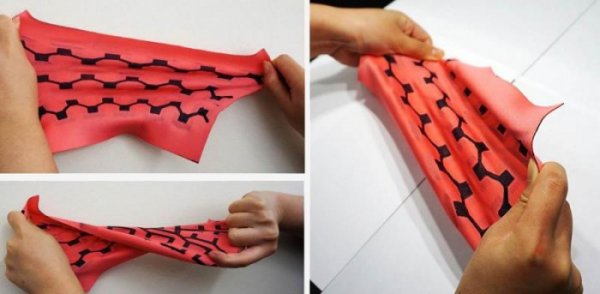Researchers at Binghamton University have developed a textile bio-cell that can serve as the foundation for future wearable electronics. Researchers led by Seokheun Choi, an assistant professor of electrical and computer science at Binghamton University, have developed flexible batteries that are said to produce more power than their previous paper-based microbial fuel cells.

Even after repeated cycles of twisting and drawing, the fabric-based battery still has a stable power generation capability. Microbial fuel cells are considered by some to be the best source of power for wearable devices because microbial cells can act as biocatalysts, providing a stable enzymatic reaction and a long lifetime. Even sweat from the human body can be used as a potential fuel to support bacterial vitality.
Choi said there is a clear and urgent need for flexible and scalable electronic devices in the future because it can be easily integrated with a wide variety of environments to collect real-time information. He added that such electronic devices must be reliably performed even when used on complex curved-shaped substrates.

Wearable device R&D is still in its infancy, but it's easy to see how this type of battery is beneficial. For example, the Levi's Commuter Trucker smart jacket utilizes removable "snaps" to drive the premium features of the jacket. Imagine how good such a wearable device would be if its power were directly woven into the garment.
This paper, "Flexible and Stretchable Biocells: Monolithic Integration of Membrane-Free Microbial Fuel Cells in a Single Textile Layer," was published in the magazine Advanced Energy Materials.
Round Bathtub
Round Bathtub
Guangzhou Aijingsi Sanitary Products Co.,Ltd , https://www.infinityedgehottub.com